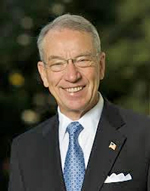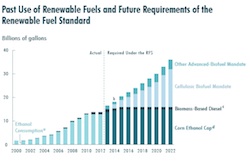 Canadian Solar Inc. has announced that it has recently signed a sales contract to supply 12.6MW of photovoltaic modules to Kayseri Organized Industry Zone and a consortium of companies in KOIZ, (BESLER Tekstil San. ve Tic. A.S and HASCELIK Group of companies- Hascelik Cable, Coreal Cable and Metal Matris) for a solar power project located in Kayseri, Turkey.
Canadian Solar Inc. has announced that it has recently signed a sales contract to supply 12.6MW of photovoltaic modules to Kayseri Organized Industry Zone and a consortium of companies in KOIZ, (BESLER Tekstil San. ve Tic. A.S and HASCELIK Group of companies- Hascelik Cable, Coreal Cable and Metal Matris) for a solar power project located in Kayseri, Turkey.- Inteco Beteiligungs GmbH, an Austrian company owned by Russian businesswoman Yelena Baturina, has signed an agreement with the German company RE-Pro (RE-Pro Renewable Energy Provider KGaA) for the development of a project aimed to generate, use and market renewable energy in Europe. The overall investment amounts to €10 million, and according to the plans announced, in the course of the implementation of the project the amount may be doubled. The first major activity of the new joint venture is the construction and commercial operation of solar panels parks (PV-Parks or Solar Parks) in the South and South-Eastern Europe. The project’s latest acquisition is a solar park in Italy that has already been fully equipped and put into operation.
- CHS Inc. has announced the retirement of a member of its leadership team and changes in responsibility for two others. John McEnroe, executive vice president, CHS Country Operations, will retire Dec. 31, 2014. Lynden Johnson, currently executive vice president, CHS Business Solutions, has been promoted to executive vice president, CHS Country Operations. Lisa Zell, currently executive vice president and general counsel, has been promoted to executive vice president, CHS Business Solutions. Both Johnson and Zell will continue in their current roles through the end of fiscal 2014 on Aug. 31, 2014, and assume their new positions on Sept. 1, 2014.
- Geodynamics Limited, a leading Australian geothermal exploration and development company, and its joint venture partner Kentor Energy Pty Ltd, a subsidiary of KGL Resources Ltd, have received development consent relating to exploration activities for the proposed 20 MW Savo Island geothermal power project in Solomon Islands from the Solomon Islands Department of Environment.
Agrisoma Recognized at BIO for Biodiesel Feedstock
 A Canadian company has been recognized for its commercialization of its non-food biodiesel feedstock. This company news release says Agrisoma Biosciences Inc. picked up the Gold Leaf Award for biotech excellence in Canada at the recent 2014 BIO International Convention in San Diego for development of carinata, sold under the company brand name Resonance, whose oil can be made into biojet fuel and biodiesel.
A Canadian company has been recognized for its commercialization of its non-food biodiesel feedstock. This company news release says Agrisoma Biosciences Inc. picked up the Gold Leaf Award for biotech excellence in Canada at the recent 2014 BIO International Convention in San Diego for development of carinata, sold under the company brand name Resonance, whose oil can be made into biojet fuel and biodiesel.
Steven Fabijanski, President and CEO stated, “Agrisoma is honored to receive the Gold Leaf Award. It is a gratifying acknowledgement of the innovation we have accomplished in bringing to market Agrisoma’s next generation agricultural products which are providing a sustainable solution for renewable energy. We have commercialized Resonance® Carinata, Canada’s first non-food crop that produces oil uniquely suited for biofuel production. Resonance Carinata was used to fuel the world’s first 100% renewable biojet fuel flight here in Canada. This Gold Leaf Award recognizes those accomplishments.”
“Agrisoma’s innovation is a fantastic demonstration of how biotechnology helps to provide the solutions needed to address the pressing challenges facing our society and environment. The company has offered an opportunity for farmers to produce a dedicated energy crop using landconsidered marginal, without impacting food production,” commented Andrew Casey, Presidentand CEO of BIOTECanada. “The vision and dedication of Agrisoma offers inspiration and promise for the economy and society more broadly. Using the tools of biotechnology to rapidly enhance performance and enhance sustainability only adds to the importance of agriculture in meeting the social, environmental and economic challenges associated with rapid global population growth.”
Also, Agrisoma’s Resonance recently gained approval as a feed for cattle.
New Fund in Biodiesel Booster Dallas Hanks’ Memory
 A new fund has been set up in memory of biodiesel booster Dallas Hanks, who recently died from cancer. The National Biodiesel Foundation set up a new foundation in Dallas’ memory. For those who might not have known this great champion of the green fuel, this Utah State University professor and founder of USU’s Center for Agronomic and Woody Biofuels was described as a visionary who had a knack for bringing stakeholders together to pursue a bigger picture. The Next Generation of Scientists Dallas Hanks Memorial Fund will honor his legacy and pass the research reins to a new generation of scientists eager to chase his dream.
A new fund has been set up in memory of biodiesel booster Dallas Hanks, who recently died from cancer. The National Biodiesel Foundation set up a new foundation in Dallas’ memory. For those who might not have known this great champion of the green fuel, this Utah State University professor and founder of USU’s Center for Agronomic and Woody Biofuels was described as a visionary who had a knack for bringing stakeholders together to pursue a bigger picture. The Next Generation of Scientists Dallas Hanks Memorial Fund will honor his legacy and pass the research reins to a new generation of scientists eager to chase his dream.
Dallas was a huge supporter and contributor to [the National Biodiesel Board’s] Next Generation Scientists program, where student scientists could be offered scholarships to attend industry events and other scientific mentoring activities. It was the consensus of the group [who gathered shortly after his death] that the National Biodiesel Foundation would create the Next Generation Scientists Dallas Hanks Memorial Fund. The proceeds of this fund will advance the original objectives of the program and assist in carrying out the visionary work that Dallas started. On behalf of the National Biodiesel Board and Foundation, the biodiesel industry, Dallas’s family and many friends, we encourage you to support this important fund in order to honor Dallas and further his legacy. Thank you.
Click here to contribute to the Next Generation of Scientists Dallas Hanks Memorial Fund.
DF Cast: Finding Ways to Increase Ethanol Blends
 While the ethanol industry awaits the Environmental Protection Agency’s decision on the amount of ethanol to be blended into the nation’s fuel supply, ethanol producers are looking at other ways to make sure the green fuel increases its blend amounts.
While the ethanol industry awaits the Environmental Protection Agency’s decision on the amount of ethanol to be blended into the nation’s fuel supply, ethanol producers are looking at other ways to make sure the green fuel increases its blend amounts.
In this edition of the Domestic Fuel Cast, we hear from Growth Energy CEO Tom Buis, Dean Drake with the consulting company the Defour Group, Scott Zaremba, president of Zarco Incorporated, and Ken Parrent, the ethanol director for the Indiana Corn Marketing Council, as they give their thoughts on how consumer demand will be a bigger driver for higher ethanol blends after attending an Indiana Corn Growers Association ethanol forum that focused on marketing mid-level ethanol blends and ran following the recent 2014 Fuel Ethanol Workshop in Indianapolis.
Domestic Fuel Cast - Increasing Ethanol BlendsLawmakers Ask Obama to Boost Biodiesel
 As the Environmental Protection Agency (EPA) is poised to release its decision on the amount of biodiesel and ethanol to be mixed into the nation’s fuel supply (and we’re hearing word now that decision might be delayed until the Fall), a bi-partisan group of lawmakers is making its appeal to the White House to allow biodiesel to keep growing. This news release from the National Biodiesel Board cites the letter from 52 lawmakers who are concerned about the EPA’s current proposal to reduce the amount of biodiesel to be required for obligated parties under the Renewable Fuel Standard (RFS)
As the Environmental Protection Agency (EPA) is poised to release its decision on the amount of biodiesel and ethanol to be mixed into the nation’s fuel supply (and we’re hearing word now that decision might be delayed until the Fall), a bi-partisan group of lawmakers is making its appeal to the White House to allow biodiesel to keep growing. This news release from the National Biodiesel Board cites the letter from 52 lawmakers who are concerned about the EPA’s current proposal to reduce the amount of biodiesel to be required for obligated parties under the Renewable Fuel Standard (RFS)
“During your time in office you have supported the development and growth of the biodiesel industry. Now, biodiesel producers around the nation have the ability to generate nearly two billion gallons a year of the only EPA-approved advanced biofuel, which is commercially available across the United States,” the lawmakers wrote in a letter to President Obama. “Therefore, we believe now is not the time for a critical shift in biodiesel policy. We urgently ask that you raise biodiesel’s RVO for 2014 above 1.28 billion gallons.”
The letter, which was led by Reps. Collin Peterson, D-Minn., and Adam Kinzinger, R-Ill., can be found here. The lawmakers signing the letter represent 22 states.
In a draft RFS rule released in November, the EPA proposed holding biodiesel volumes at 1.28 billion gallons – a sharp drop from last year’s actual production of nearly 1.8 billion gallons. Biodiesel producers around the country have warned that such a proposal will cause severe contraction in the industry. A nationwide survey of producers conducted by the National Biodiesel Board (NBB) in April found that more than half have already idled a plant this year and 78 percent have reduced production from last year. Nearly two-thirds – 66 percent – have already laid off employees or anticipate doing so.
NBB officials have previously expressed their shock and disappointment on the proposal because of the success biodiesel has already shown in exceeding the targeted amounts of renewable fuels. They call on the Obama Administration “to finalize a strong RFS volume as quickly as possible.”
Biofuels and Wind Waiting on Action
Environmental Protection Agency administrator Gina McCarthy said earlier this year that they planned to issue a final rule on the proposed volume requirements under the Renewable Fuel Standard (RFS) in “late spring or early summer” but spring is gone and summer is here and there’s been no word yet.
 Senator Chuck Grassley (R-IA) said last week that he thought the decision was delayed now until fall. “The fact that they’ve delayed it is a little bit of good news,” he said during an interview on June 19. “The bad aspect of it is that it retards investment in ethanol … and it doesn’t just effect ethanol but biodiesel too.” Grassley said he really doesn’t know when the EPA will announce the final rule, although he does believe it will be better than the proposal released in November. “I don’t think they’ll be that bad, but whatever is less than present law is going to be bad anyway, maybe just less bad.”
Senator Chuck Grassley (R-IA) said last week that he thought the decision was delayed now until fall. “The fact that they’ve delayed it is a little bit of good news,” he said during an interview on June 19. “The bad aspect of it is that it retards investment in ethanol … and it doesn’t just effect ethanol but biodiesel too.” Grassley said he really doesn’t know when the EPA will announce the final rule, although he does believe it will be better than the proposal released in November. “I don’t think they’ll be that bad, but whatever is less than present law is going to be bad anyway, maybe just less bad.”
Meanwhile, Grassley says the wind energy industry, which is huge in Iowa, is still waiting on Congressional action to extend tax credits. “As a father of the wind energy tax credit, I want to get it renewed,” he said. “It’s part of a package of 53 renewals that have to be passed by the Senate and it’s up to Reid when he brings it up … we don’t get any indication from him on it.” Grassley says he will continue to push to make that happen.
CBO Releases RFS Report
The Congressional Budget Office has released a new report, “Renewable Fuel Standard: Issues for 2014 and Beyond“. The evaluates how much the supply of various types of renewable fuels would have to increase over the next several years to comply with the  Renewable Fuel Standard (RFS). The U.S. Environmental Protection Agency (EPA) has yet to finalize its 2014 proposed rule, that if finalized based on initial numbers, would set the growth of biofuels backwards. The report also examines how other issues, such as fuel prices and emissions would vary by 2017, under three RFS scenarios:
Renewable Fuel Standard (RFS). The U.S. Environmental Protection Agency (EPA) has yet to finalize its 2014 proposed rule, that if finalized based on initial numbers, would set the growth of biofuels backwards. The report also examines how other issues, such as fuel prices and emissions would vary by 2017, under three RFS scenarios:
- The EISA volumes scenario, in which fuel suppliers would have to meet the total requirement for renewable fuels, the requirement for advanced biofuels, and the cap on corn ethanol that are stated in EISA for 2017—but not the requirement for cellulosic biofuels, because the capacity to produce enough of those fuels is unlikely to exist by 2017;
- The 2014 volumes scenario, in which the EPA—which has some discretion to modify the mandates of EISA—would keep the RFS requirements for the next several years at the same amounts it has proposed for 2014; and
- The repeal scenario, in which lawmakers would immediately abolish the RFS.
The report finds that food prices would be similar in all scenarios, including the dismantling of the RFS. However, the report finds that advanced biofuels must increase substantially to meet requirements, and that the increased use of all biofuels would increase the price of fuel at the pump.
In response to the report, Brooke Coleman, executive director of the Advanced Ethanol Council (AEC) noted that the report fails to take into account basic realities when it comes to assessing the program.
“Some reports are simply not worth reading, and this is one of them. You cannot assess the impacts of the RFS without looking at the benefits of reducing consumer demand for gasoline and diesel fuel,” said C oleman. “That’s the entire point of the RFS and the CBO simply states that ‘it did not account for that effect in this analysis.’ To put that omission in perspective, an oil economist recently concluded that the RFS saved motorists at least hundreds of billions of dollars in 2013 by adding the equivalent of an additional OPEC country to U.S. gasoline supplies during times of extreme tightness between supply and demand.”
oleman. “That’s the entire point of the RFS and the CBO simply states that ‘it did not account for that effect in this analysis.’ To put that omission in perspective, an oil economist recently concluded that the RFS saved motorists at least hundreds of billions of dollars in 2013 by adding the equivalent of an additional OPEC country to U.S. gasoline supplies during times of extreme tightness between supply and demand.”
“Whatever the savings are, an analysis of a foreign oil displacement program that does not look at the benefits of displacing foreign oil demand should be dismissed out of hand. The gas price claims are really strange as well,” continued Coleman. “A cornerstone assumption in the report has RFS-RIN prices so high that gasoline retailers could give renewable fuel blends away for free and still make a profit. Needless to say, this is never going to happen. CBO reports are supposed to be impartial and objective, and therefore informative.”
Coleman concluded, “This particular report appears to detail a fantasy world that does not inform the current debate.”
Two Dot Wind Project Completed
 The Two Dot Wind Project has been completed. The project is located in Two Dot, Montana, and the wind farm is owned by NJR Clean Energy Ventures, an unregulated clean energy subsidiary of New Jersey Resources). The 9.73 megawatt project is the company’s first onshore wind project, which was energized earlier this month. The energy produced will be sold to NorthWestern Energy under a 25-year power purchase agreement (PPA).
The Two Dot Wind Project has been completed. The project is located in Two Dot, Montana, and the wind farm is owned by NJR Clean Energy Ventures, an unregulated clean energy subsidiary of New Jersey Resources). The 9.73 megawatt project is the company’s first onshore wind project, which was energized earlier this month. The energy produced will be sold to NorthWestern Energy under a 25-year power purchase agreement (PPA).
Mortenson Construction was responsible for the design and construction of access roads, foundations, erection, underground electrical collection system and a 100kV substation interconnecting into an adjacent Northwestern Energy transmission line. The Two Dot wind farm is the fifth wind farm the renewable energy contractor has built in the state to date and its 135th wind project constructed since 1995.
“We are very pleased to support NJR’s entry into the wind industry and to be part of the expansion of their renewable energy portfolio,” said Tim Maag, VP and general manager of Mortenson’s Wind Energy Group. “We value our new partnership and their commitment to furthering the growth of our industry.”
Mortenson will begin construction on their second project for NJR, the Carroll County wind farm, located in Iowa in late summer.
Wisconsin Students Go to School with Propane
Lamers Bus Lines and Badger Bus are increasing their use of propane autogas. Lamars Bus Lines has recently added 41 new Blue Bird Propane Vision school buses expanding its propane fleet to 59 buses. The buses will transport students in Milwaukee Public Schools and feature Blue Bird’s extended range 100-gallone fuel tank. Each bus will travel nearly 9,000 miles each year.
In the past year, Lamers Bus Lines said they have saved over $14,000 in fuel costs by  switching to Blue Bird Propane Vision buses. The company is currently installing an onsite 30,000-gallon fueling dispenser that will service the new Milwaukee propane autogas buses.
switching to Blue Bird Propane Vision buses. The company is currently installing an onsite 30,000-gallon fueling dispenser that will service the new Milwaukee propane autogas buses.
“Our propane buses have been completely trouble-free,” said Allen Lamers, president of Lamers Bus Lines. “We’ve had no issues what-so-ever on them and the deployment has been smooth. We received comprehensive training from our local dealer, Wisconsin Bus Sales, along with Roush CleanTech and our local propane provider. From all aspects, the buses are logical, simple and require minimal adaptation. Propane autogas is a great option for school buses and we couldn’t be more pleased with our fleet.”
Badger Bus, has been successfully operating propane autogas school buses for the past two years. The contractor is adding 16 new Blue Bird Propane Vision buses, expanding its total propane fleet to 20. The new propane buses will transport students in Madison Metropolitan School District.
The company has a 2,000 gallon propane autogas tank onsite and is currently paying $1.19 per gallon for fuel – a significant savings over its diesel price of $3.48 per gallon. Each buses travels between 12,000 to 14,000 miles each year, and Badger Bus said they are seeing an average annual fuel savings of over $3,500 per bus.
“Badger Bus has been known for its reliable transportation since our founding in 1920. Our experience with Blue Bird’s propane autogas buses has been a very positive, economical experience. Our drivers love the power and quiet operation, our technicians love the ease of service and simplistic engine, and the domestic, affordable fuel provides us with even greater benefits,” said John Meier, co-owner of Badger Bus. “Overall safety is of paramount importance with the students we transport and the safety and environmental benefits of these buses further strengthen our partnership with the community.”
Don’t Turn Your Back on the RFS
With no end in sight on the turmoil in Iraq and oil prices and gas prices on the rise as a result, Americans United for Change (AUFC) have launched a new ad campaign encouraging the U.S. Environmental Protection Agency (EPA) to stay the course and not turn its back on the Renewable Fuel Standard (RFS).
‘Control’ will being airing on national cable stations including MSNBC, CNN and Fox News June 3, 2014 just head of the 4th of July weekend. The strategy is one designed to let people know that preserving the RFS and cheaper choices at the pump for Americans means more stability in gas prices even during times of turmoil in other countries.
The bottom line, says AUFC, now is not the time for the U.S. to slip further into dependency on foreign oil by discouraging ethanol and biodiesel production, which boosts our nation’s economy, rural communities, national security and environment.
Jeremy Funk, communications Director for Americans United for Change said of the new TV campaign, “If anything should give the EPA pause before deciding to roll back the Renewable Fuel Standard, it’s the bubbling turmoil in Iraq. While the escalating violence has yet to significantly disrupt oil production in the region, just speculation that it will has already sent oil prices on their way to a 6-year high heading into the 4th of July weekend.”
Funk continued, “Any time there is unrest in oil-producing regions overseas, it’s a recipe for jittery markets and inflated oil prices back home. It’s the price American consumers pay at the pump again and again living in a nation so reliant on foreign oil. It’s the reason why the nation can’t afford to scale back the RFS now and put all of our eggs in Big Oil’s basket. Big Oil says ‘don’t worry, we’re producing more domestic oil than ever’, but they don’t mention it only amounts to a third of what Americans consume each day. Big Oil doesn’t mention they’re actively trying to widen the domestic supply vs demand gap by spending millions of dollars campaigning to put out of business their cheaper, cleaner renewable fuels competition that accounts for 10 percent of the nation’s gas supply.”
Dismantling the RFS, says Funk, would take away what protection American consumers do have from supply shortages, market whims and Middle East instability. He also notes that not continuing forward with the RFS would undermine America’s national security by requiring more imports from regions whose policies and interests often clash with our own.
This TV ad follows on the heels of several others all focused on keeping the RFS in place including ‘The Kingdom’, ‘Bottom Line’, ‘Simple Choice’, and ‘Why Mess With Success’.

